Editor:
Brandon Sweet
University Communications
bulletin@uwaterloo.ca
Today, Waterloo remembers

The University of Waterloo community will join the rest of the country in pausing for a few moments today to remember Canada's war dead.
"Remembrance Day is an important day of reflection in Canada and many countries around the world," says President Vivek Goel in an official statement to the University community. "On this day we remember and honour all the individuals who have and continue to serve in Canada’s Armed Forces through times of war, armed conflict and peace."
"As we commemorate Remembrance Day, it is important to reflect on the many diverse communities who have served and sacrificed for our country since the First World War," President Goel says. "Canada’s Indigenous, Black and other racialized soldiers served this country bravely while also facing discrimination at home. Over the decades, the diversity of our veterans has continued to evolve. This year marks the 30th anniversary of end of the Gulf War, the first conflict in which women served in combat roles for Canada’s Armed Forces."
2021 also marks the 100th anniversary of the adoption of the poppy as a symbol of remembrance, and the centenary of the establishment of Armistice Day, to be observed annually on the Monday of the week of November 11, the anniversary of the day in 1918 when the guns fell silent at the end of the First World War. This act of Parliament was amended in 1931, 90 years ago, to formally enshrine November 11 as Remembrance Day. Much of the imagery we associate with Remembrance Day is connected to the First World War, including the poppies, sold by the Royal Canadian Legion and worn on lapels, that recall the wildflowers that grow in the fields of Flanders, in north Belgium, as mentioned in the famous poem by Lt.-Col. John McCrae that is read at many Remembrance Day commemorations.
In accordance with the University's flag guidelines, flags will be lowered from 11:00 a.m. to 12:00 noon on campus today. "I encourage you all to take a moment at 11:00 a.m. to reflect and remember," President Goel's statement concludes.
The ongoing pandemic continues to affect the way that our campus and community are marking today's solemn occasion. There are no in-person events planned on campus today, and there will be a scaled-down ceremony at the Waterloo cenotaph beginning at 10:30 a.m. today that includes physical distancing and mandatory masks. There will be no veteran's parade, reviewing stand, or cenotaph vigil, and the ceremonial wreaths, 16 in total, will be placed at the cenotaph ahead of time. Similar ceremonies will be taking place in Kitchener, Cambridge, and Stratford.
The CBC will be covering the national Remembrance Day ceremony in Ottawa.
An alumnus uncovers his grandfather's harrowing story of war
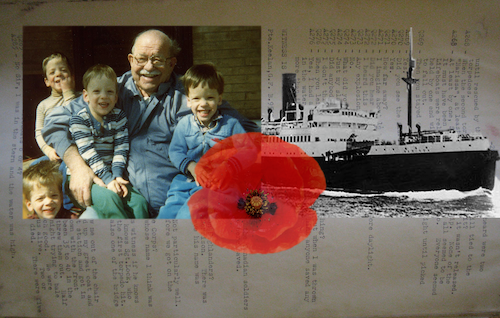
By Geoff Keelan (MA ’10, PhD ’15). This article was originally published in the fall issue of Waterloo Magazine.

On April 21, 1941, the SS Nerissa pulled out of the port of Halifax to begin a journey across the Atlantic Ocean to England where Canadians soldiers were preparing for the invasion of Nazi-occupied Europe.
On board was a 21-year-old RCMP officer, my grandfather Gerry Keelan. Nine days and 4,000 kilometers later, my grandfather and some of his fellow officers were finishing a game of bridge around midnight when a terrific blast threw them out of their chairs.
Thankfully, my grandfather’s cabin was the last one on the stern which meant he and his cabin mates were able to jump in a nearby lifeboat.
From this lifeboat, they spotted a Nazi submarine just 15 meters away. Then a second and third torpedo passed under their lifeboat, hitting the Nerissa at the same time — tearing the ship in two and sinking it within seconds.
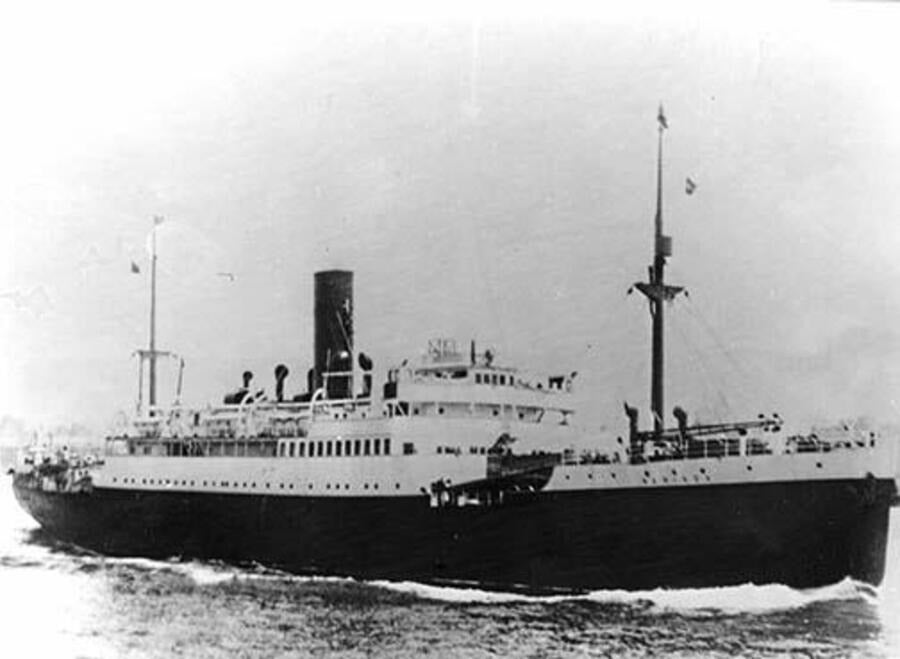
Baling water in a leaking lifeboat
For the next nine hours, it rained as my grandfather and the other conscious survivors baled water from their leaking lifeboat. Constantly battered by the high waves of the Atlantic Ocean, it was 8 a.m. when a destroyer finally pulled up alongside them just off the coast of Ireland.
Twelve were still alive in the boat when they were finally pulled out of the rocking seas. Seven others had died in the night.
Only 84 of the 290 passengers and crew of the SS Nerissa survived in the single largest loss of Canadian troops en route to England during the Second World War — 62 Canadian servicemen died that night.
My grandfather survived and arrived in England safe and uninjured, where he was stationed at Aldershot, Hampshire with the 21st Army Group as a member of the Military Police. Soon after, he met Irene Trott, an English schoolteacher and my grandmother.
I never heard any of these stories from my grandfather, or even from my father. Grandpa Gerry did not talk much to any of his children or grandchildren about the war before his death in 1998. Or, I was just too young to listen.
Eventually, I studied Canadian history at the University of Waterloo with History Professor Whitney Lackenbauer, beginning my doctoral studies 70 years after the Nerissa sunk.
Searching for my grandfather's story
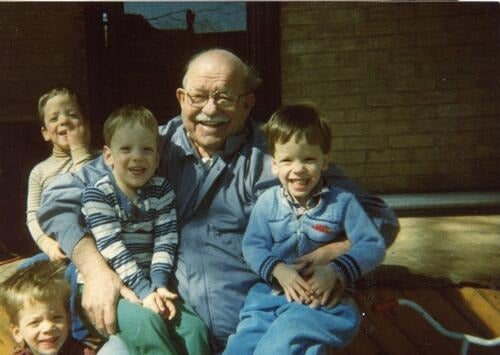
Although my work did not focus on the Second World War, my experience with Library and Archives Canada eventually helped me get a job there as an Access Archivist. With closer and easier access, I finally took the time to dive deeper into the holdings. I searched, not for my grandfather’s service records, but for records around the ship he had been on.
I discovered that he was interviewed for the Court of Inquiry regarding the sinking, but even still his words cover less than a page. One of the Provost Corps soldiers who roomed with him wrote a much more complete record of the event, which is how I now know of this harrowing night and his brush with death.
Family histories and wartime struggles
On Remembrance Day, when we are meant to remember those who were lost and those who survived, I always consider myself lucky to have even a small part of my grandfather’s story. If I had taken a different career path, my family likely never would have thought to look for anything other than a service file, or known where to look for it.
I reflect on this story whenever I give public or classroom lectures about the war, or when I have a chance to speak with a veteran. For many of us, our family histories are intertwined with wartime struggles, good and bad, but few ever get the chance to see written transcripts of something their grandparents endured.
Most can only imagine their stories in our larger history of the wars, imagining what triumphs and failures they endured and the dark times through which they lived.
All of these stories have the same common thread, whether they be found deep in the archives or told over a glass of wine late at night decades later. There is one reason, above all else, to find and tell these stories: They are meant to be remembered.
Geoff Keelan is an archivist at Library and Archives Canada.
New Waterloo-based Collaboratory for Digital Equity Research launches
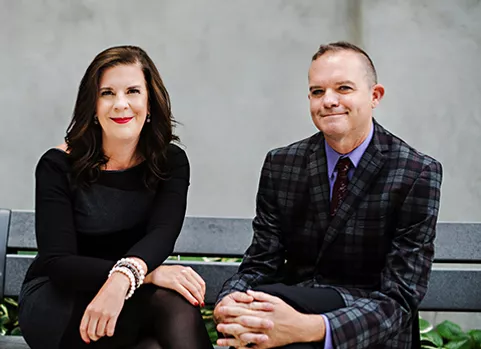
Professor Diana Parry and Professor Corey Johnson.
Co-directors Professor Corey Johnson and Professor Diana Parry from the Department of Recreation and Leisure Studies have founded the Collaboratory on Digital Equity Research (CODER), which aims to mobilize research in the digital humanities and social sciences to inform public culture, policy, practice, and everyday social relations to create a more equitable and just society.
Other team members include Stefanie Duguay, assistant professor in the Department of Communication Studies at Concordia University, Professors Eric Filice, Luc Cousineau and Harrison Oakes, and Ph.D. student Jasmine Nijjar from the University of Waterloo.
CODER has recently conducted several projects related to geo-social networking applications, otherwise known as dating apps, such as Tinder, Grindr, and Bumble. Among other things, they have looked at the networking application’s cultural impacts and influence on gender identities, sexual practices, public and private spaces and users’ quality of life.
The group is also involved in multiple industry and non-profit partnerships. In collaboration with Bumble, CODER studied how dating experiences are affected by spaces that are structured around principles of justice and social equity. CODER has also partnered with the Sexual Assault Support Centre of Waterloo Region (SASC) to understand the role that dating apps play in sexual violence online.
CODER is engaged in a multipronged knowledge mobilization strategy to disseminate their research to academics, policy makers and interested members of the public. Recently they have recruited the assistance of a video production agency to produce a series of digital shorts synthesizing participant stories of GSNA use, accessible on CODER’s YouTube Channel. For information on past and current projects visit the CODER website or contact Professor Johnson via email at corey.johnson@uwaterloo.ca.
Thursday's notes
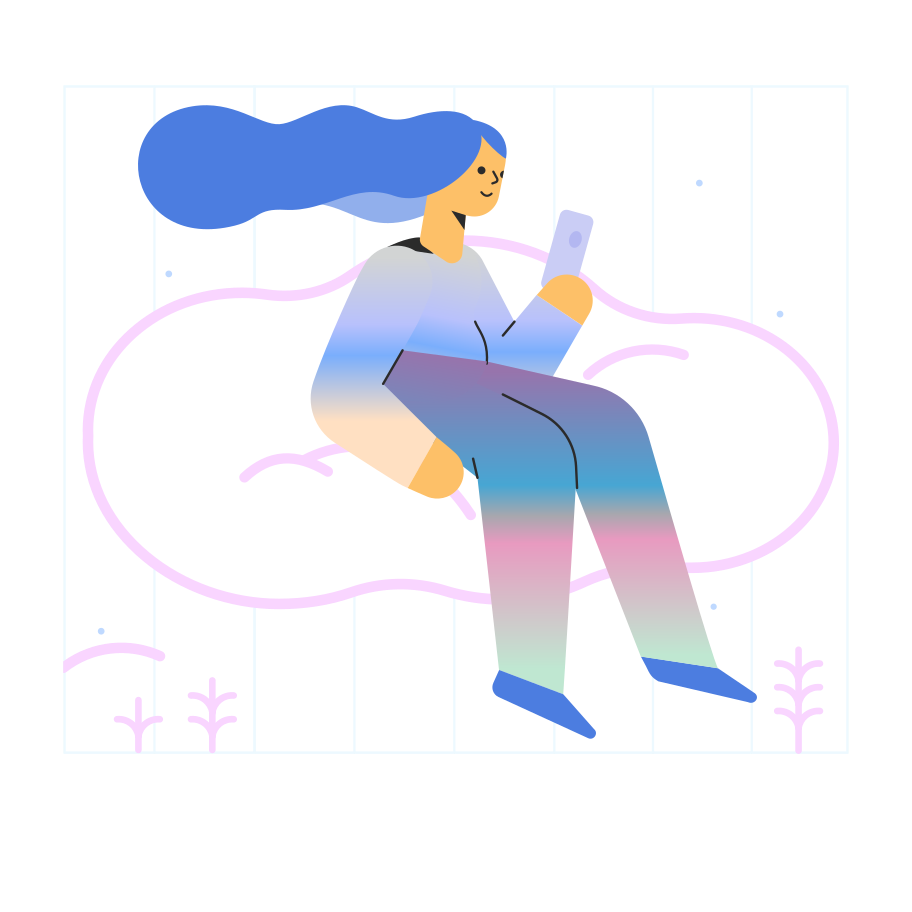
Information Systems and Technology has announced that the fall 2021 issue of the IST Newsletter is now available. Read about the Mass Email Management project, WatITis conference, alumni email migration, campus Wi-Fi improvements, WCMS 3 training, and more on the e-newsletter website.
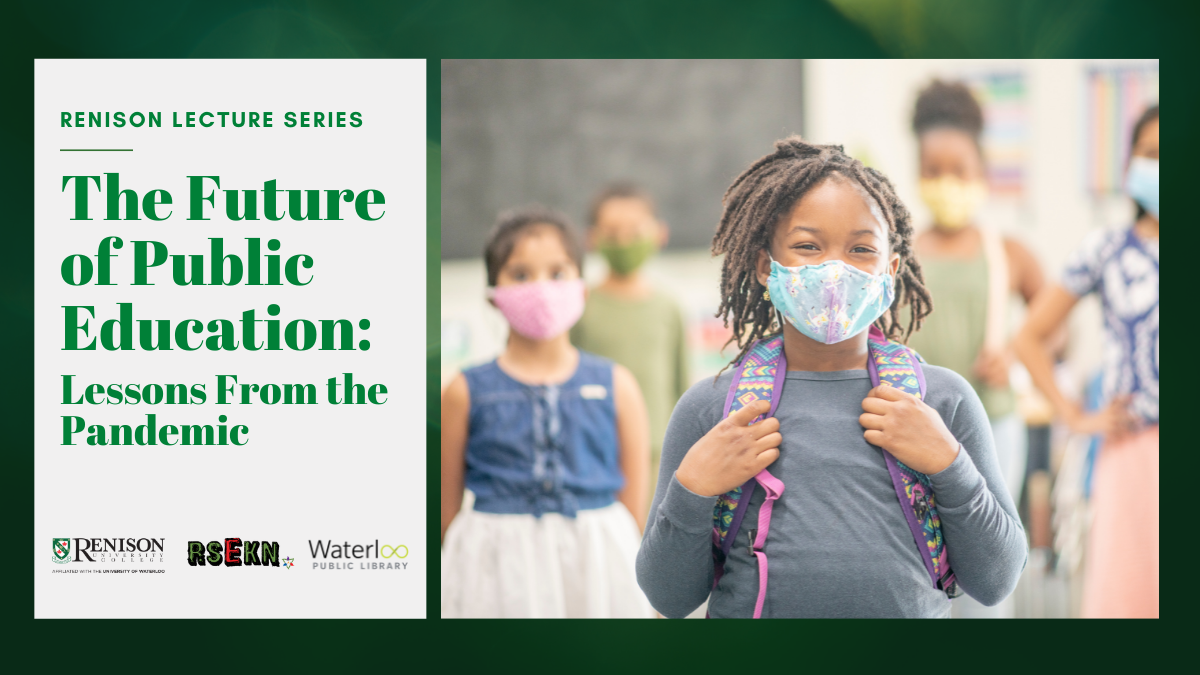
Renision University College and the Waterloo Public Library are co-hosting a virtual panel discussion entitled The Future of Public Education: Lessons from the Pandemic on November 16 at 7:00 p.m.
"The COVID-19 pandemic has disrupted education systems in unprecedented ways," says the event description. "The crisis exacerbated long-standing inequalities, revealed the limits of technology, raised questions about learning loss and recovery, heightened concerns about corporatization, exposed the value of teaching, and much more. There is an urgent need to envision the future of public education for a post-pandemic world. What lessons have we learned from the pandemic for public education systems in Canada?"
The event features panellists Vidya Shah of York University's Faculty of Education, Beyhan Farhadi, postdoctoral fellow at York University and TDSB teacher, Joel Westheimer, University Research Chair in Democracy and Education at the University of Ottawa, and jeewan chanicka, director of Education at the Waterloo Region District School Board. Social and Development Studies Professor Kristina R. Llewellyn will moderate this session.
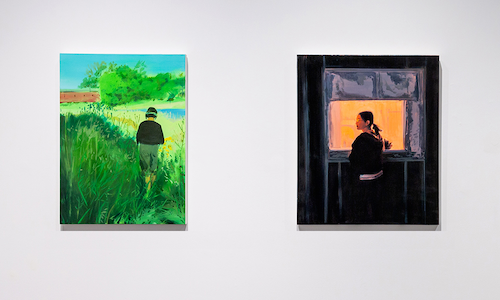
The University of Waterloo Art Gallery and theDepartment of Fine Arts are presenting MFA alumni Amanda Rhodenizer in conversation with Emma McKay discussing the artist’s series of paintings O’er the Western Hills on Thursday, November 18 from 7:00 p.m. to 8:00 p.m. Register for the event on Eventbrite.
Amanda Rhodenizer holds an MFA from the University of Waterloo and BFA from the Nova Scotia College of Art and Design. Emma McKay is completing a PhD at McGill University and works with physicists to spread radical critiques of the way we do science now, focusing on how modern science is connected to the military, extraction, and colonialism, and how educational community building around diversity can help. Ivan Jurakic, the director/curator of the University of Waterloo Art Gallery will moderate the conversation.
O’er the Western Hills was conceived by the artist in collaboration with her subjects, including students, temp workers, teachers and retirees, who are actively engaged in work from a range of specialized STEM fields including fire safety, water quality, wetland conservation, site remediation, regenerative permaculture, ethics and justice, accessibility and outreach, and astrophysics. Despite their many professional accomplishments, the lived experiences of these members of the science community remains largely dominated by masculinity, whiteness, hetero-cis-normativity, and other forms of privilege. Rather than acting as a recruitment for Women in STEM, the thirteen paintings in the exhibition are intended as a collection of portraits of female and non-binary workers sharing their experiences.
O’er the Western Hills is on display until December 8. For more info or to book a viewing please visit the UWAG website.
Link of the day
When and Where to get support
Students can visit the Student Success Office online for supports including academic development, international student resources, immigration consulting, leadership development, exchange and study abroad, and opportunities to get involved.
Instructors looking for targeted support for developing online components for blended learning courses, transitioning remote to fully online courses, revising current online courses, and more please visit Agile Development | Centre for Extended Learning | University of Waterloo (uwaterloo.ca).
Instructors can visit the Keep Learning website to get support on adapting their teaching and learning plans for an online environment.
Course templates are available within your course in LEARN to help you build and edit your content and assignment pages quickly.
The following workshops, webinars, and events are offered by the KL team (CTE, CEL, ITMS, LIB):
- Independent Remote Course Design Essentials, self-directed, continuous self-enrollment course in LEARN.
- Independent Blended Course Design (iBlend), self-directed, ongoing
- Copyright Overview for Waterloo Instructors and Staff - self-directed, continuous self-enrollment course in LEARN.
-
Thirty Minute Thursdays– PebblePad – Offered:November 11, November 18, November 25, 12:00 noon to 12: 30 p.m.
-
Integrating PebblePad Retreat (IPR) -Setting up your Winter 2022 PebblePad Assignments and Activities (CTE 7531) - December 7, 1:00 p.m.
Employees can access resources to help them work remotely, including managing University records and privacy of personal information. Here are some tips for staying healthy while working from home.
Stay informed about COVID cases on campus by consulting the COVID case tracker.
The Writing and Communication Centre has virtual services and programs to help undergrads, grad students, postdocs and faculty members with academic writing.
- Meet with writing advisors in one-to-one appointments to brainstorm, draft, revise, and polish. No time for an appointment? Try email tutoring for undergrads.
- Beat isolation and make writing progress at weekly Virtual Writing Cafés for grad students and faculty or PJ-Friendly Writing Groups for Undergrads.
- Take an online workshop or apply to our popular Dissertation Boot Camp program.
- Faculty can request custom in-class workshops for their courses, or the WCC can facilitate any existing workshops for student groups.
Co-op students can get help finding a job and find supports to successfully work remotely, develop new skills, access wellness and career information, and contact a co-op or career advisor.
The Centre for Career Action (CCA) is offering some in-person services for fall 2021. The Tatham Centre is open with front-desk support, limited in-person appointments and co-op consults. Services are also available virtually. Book an appointment online or Live Chat with our Client Support Team. The CCA is here to help.
If you feel overwhelmed or anxious and need to talk to somebody, please contact the University’s Campus Wellness services, either Health Services or Counselling Services. You can also contact the University's Centre for Mental Health Research and Treatment. Good2Talk is a post-secondary student helpline available to all students.
While the Library continues to focus on digital resources and consultations, our spaces are open for the fall term. Dana Porter Library is open Monday to Friday, 9 a.m. to 5 p.m., and Davis Centre Library is open Monday to Friday, 9 a.m. to 11 p.m., and Saturday and Sunday, 11 a.m. to 5 p.m. for drop-in individual study space, bookable individual study rooms, drop-in access to computers and printers, book pick-up services and IST Help Desk support. Special Collections & Archives and the Geospatial Centre will be accessible by appointment. Library staff are available for questions via Ask us. Full details on current services and hours are available on the Library’s COVID-19 Update webpage.
The Faculty Association of the University of Waterloo (FAUW) continues to advocate for its members. Check out the FAUW blog for more information.
The University of Waterloo Staff Association (UWSA) continues to advocate for its members. Check out the UWSA blog for more information.
The Sexual Violence Prevention and Response Office (SVPRO) supports all members of the University of Waterloo campus community who have experienced, or been impacted, by sexual violence. This includes all students, staff, faculty and visitors on the main campus, the satellite campuses, and at the affiliated and federated Waterloo Institutes and Colleges. For support, email: svpro@uwaterloo.ca or visit the SVPRO website.
The Office of Indigenous Relations is a central hub that provides guidance, support, and resources to all Indigenous and non-Indigenous campus community members and oversees the University's Indigenization strategy.
The Waterloo Indigenous Student Centre, based at St. Paul’s University College, provides support and resources for Indigenous students, and educational outreach programs for the broader community, including lectures, and events.
WUSA supports for students:
Peer support - MATES, Glow Centre, RAISE, Women’s Centre - Visit https://wusa.ca/peersupport to book an appointment either in person or online for the Fall term!
Food Support Service food hampers are currently available from the Turnkey Desk 24/7 in the Student Life Centre. Drop off locations are also open again in SLC, DC, DP, SCH and all residences.
Co-op Connection all available online. Check https://wusa.ca for more details.
Centre for Academic Policy Support - CAPS is here to assist Waterloo undergraduates throughout their experience in navigating academic policy in the instances of filing petitions, grievances and appeals. Please contact them at caps@wusa.ca. More information is available.
WUSA Student Legal Protection Program- Seeking legal counsel can be intimidating, especially if it’s your first time facing a legal issue. The legal assistance helpline provides quick access to legal advice in any area of law, including criminal. Just call 1-833-202-4571.
Empower Me is a confidential mental health and wellness service that connects students with qualified counsellors 24/7. They can be reached at 1-833-628-5589.
When and Where (but mostly when)
Healthy Warriors at Home (Online Fitness)
Warriors vs. Laurier Blood Donation Battle. Join your fellow Warriors, donate blood and help us win the Blood Battle against Laurier for a second year in a row. Set up a profile or add the PFL code: UNIV960995 to your account if you have a blood.ca account already. Questions? Contact WarriorsInfo@uwaterloo.ca.
Drop-in to Warrior Virtual Study Halls on Wednesdays from 5:30 p.m. to 7:00 p.m. Come together in this virtual space to set goals and work independently or in groups each week.
Renison English Language Institute continues to offer virtual events and workshops to help students practice their English language skills.
Concept $5k Semi-Finals, Wednesday, November 10 and Thursday, November 11, 5:00 p.m. to 7:00 p.m., on Zoom.
Remembrance Day, Thursday, November 11.
Online Conference, "International Humanitarian Law and the Responsibility to Protect (R2P) @ 20 Years", Thursday, November 11, 12:30 p.m. to 3:15 p.m., virtual.
NEW - COP26 side event: Canada’s Peatlands as a Nature-based Solution to Climate Change, Thursday, November 11, 1:30 p.m.
NEW - Book Launch: Peace is Everyone's Business, Thursday, November 11, 4:00 p.m.
Arriscraft Speaker Series: Praxes of Care: Caretakingfeaturing Annmarie Adams & David Theodore, moderated by Fiona Kenney, Thursday,November 11, 6:00 p.m. Register for this event.
Centre for Sight Enhancement webinar, “Addressing the Global Vision Crisis: Coping and Living with Low Vision”. Thursday, November 11, 7:00 p.m. to 8:30 p.m. via Zoom.
WaterTalk: York Region’s One Water Story… recognizing the value of water in all its forms, presented by Erin Mahoney, Friday, November 12, 2:30 p.m.
NEW - Women’s Volleyball vs. Windsor, Friday, November 12, 6:00 p.m. Home Opener, Warrior (Youth) Day, Donor Appreciation Day. Free tickets available for youth; email WarriorsTickets@uwaterloo.ca for the coupon code. Purchase tickets.
NEW - FUSION 2021: Advances and Emerging Opportunities in Financial Technology, Saturday, November 13.
NEW - GEDI Exchange Webinar - A 30 Minute Exchange with Friendlier and TeTechS: Tuesday, November 16, 1:00 p.m. Join this discussion with Friendlier and TeTechS as they discuss “Reimagining reducing and reusing before recycling”. Register here: https://uwaterloo.ca/gedi-exchange/30-minute-exchange.
NEW - The Future of Public Education: Lessons from the Pandemic, Tuesday, November 16, 7:00 p.m. (online) presented in partnership with the Waterloo Public Library.
NEW - WIN Thematic Seminar Series: Sustainable Nanomaterials for Environmental Management Systems, Wednesday, November 17, 12 noon.